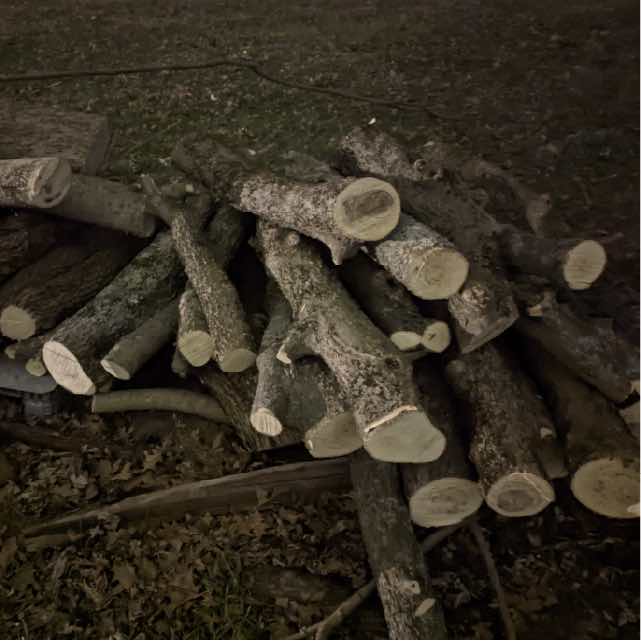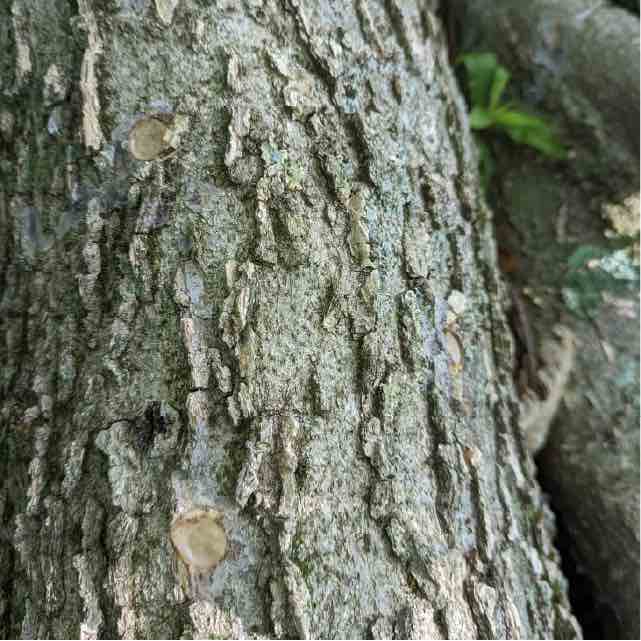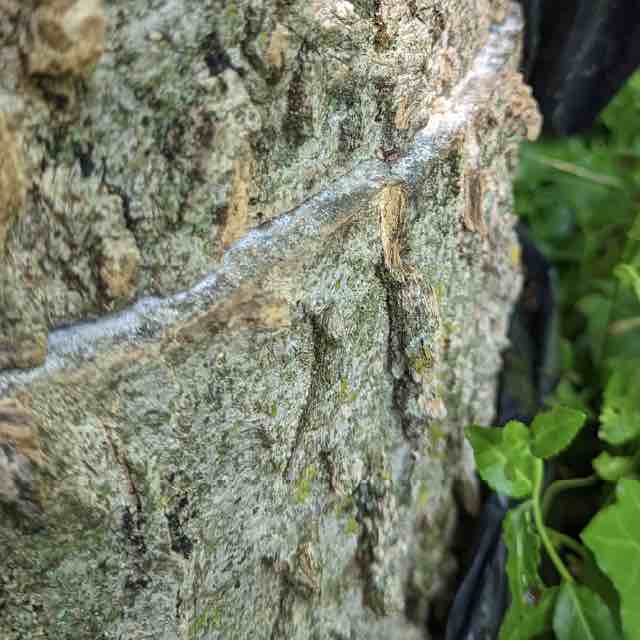Citizen Science: Turkey Tail Cultivation on Hackberry Logs
This citizen science study aims to examine if Turkey Tail (Trametes versicolor) mushrooms can be cultivated on Hackberry (Celtis occidentalis) logs.



Project Background
Traditionally, Turkey Tail has been known to grow on most hardwoods, but Field & Forest Products has only tested on Oak and Sugar Maple. Looking to expand our woody database, Garnett Coy presented a stock of Hackberry logs to contribute to experimentation. Hackberry is a deciduous tree native to North America and can be commonly found in many different habitats, with lesser conservation concerns. This
ubiquitous tree prefers shady zones that have soils rich in limestone and can be prone to easily rotting.
Project Description
Occupying agricultural zone 6b, Garnett Coy, aims to explore if Hackberry logs are a suitable host for Turkey Tail spawn. With five test logs cut on March 3 rd , 2022, then inoculated on March 30th , 2022, with Turkey Tail sawdust spawn, we wait to see if a mycelial run takes hold in the Hackberry's cellular pathways. Garnett tested the drill-and-fill method on several logs, sized approximately 4' in length x 6" in diameter, as well as testing the totem method on a larger diameter portion of the tree. The inoculated logs were placed on a pallet under a Silver Maple canopy in an undisturbed location.
Results
In Progress
Observations
Logs all look healthy, seals are holding, lots of herbaceous growth nearby.
Project Start Date:
March 3rd, 2022